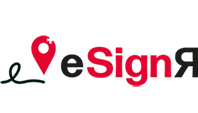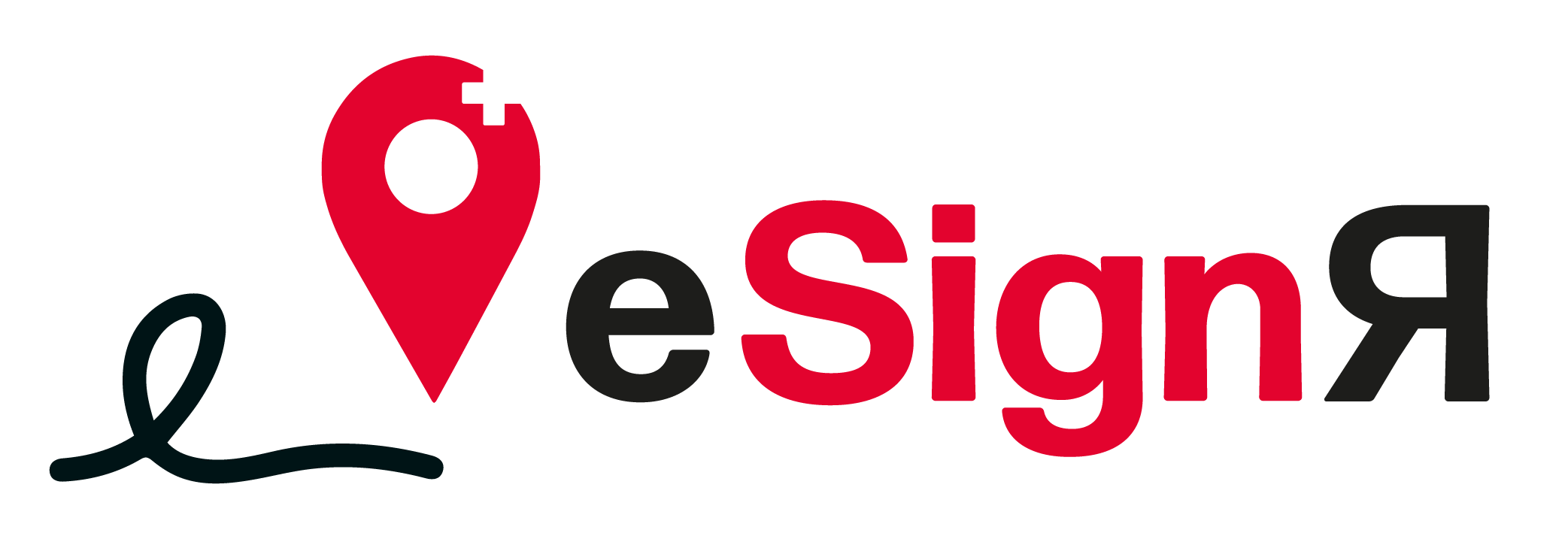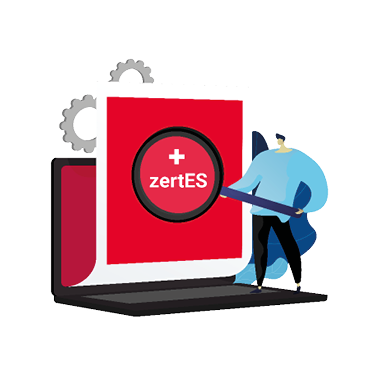Whether working from home or in the office, many people would like to be able to digitise all their processes, including digital signatures.
The digital signature is a factor that simplifies and accelerates the digital transformation of administrative processes. Read the whitepaper “The digital signature: an enabler of digital transformation” now to learn more about the encryption process and how it is anchored in the Swiss Federal Electronic Signature Act (ZertES) and the European eIDAS regulation.
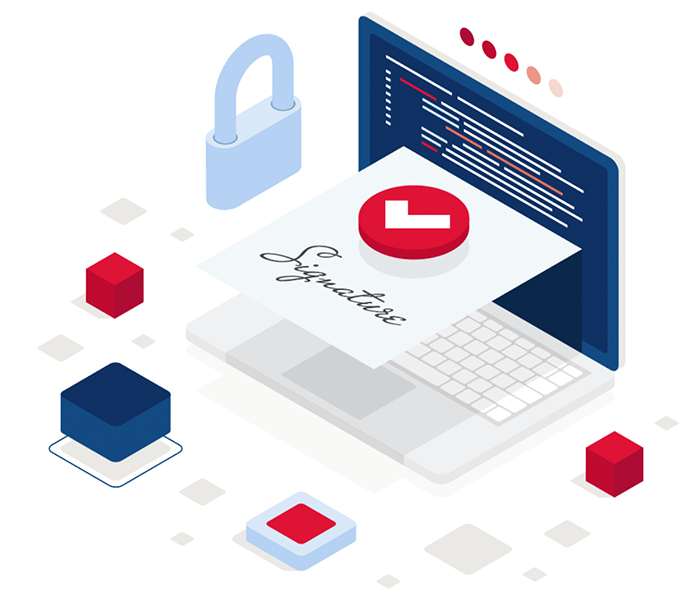
Standards in the field of digital signatures
As a partner of Swisscom Trust Services, we comply with the following standards in the area of digital signatures:
PDF/A standard
DIN standard 419.241-1
EU Trusted List
Differences in evidential value between digital signature types
SES, AES or QES – which is the right choice?
In the field of digital signatures, three types of signatures are often mentioned – the simple (SES), the advanced (AES) and the qualified electronic signature (QES). The SES and AES are not regulated in Swiss law and have no legal significance. Only the QES is regulated by law in Switzerland and therefore has the only and highest legal effect.
eSignR exclusively uses the qualified electronic signature, which is 100% equivalent to the hand signature in Switzerland as well as in the EU and thus carries the maximum probative force.
Read the blog article now for more information:
«SES, AES or QES? – What are the differences between the digital signature types?»
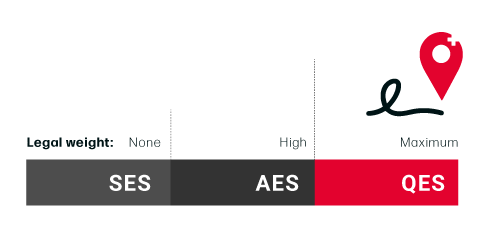
In times of Covid-19 and home office, eSignR already pays for itself many times over when it comes to the legally valid signing of documents, if only by saving the otherwise necessary postal routes.
Single face-2-face identification
Registration on site in Switzerland: Watch Video, 0.57′
Legally compliant identification for the digital signature
Before you can use the qualified electronic signature (QES) in accordance with Swiss (ZertES) and European (eIDAS) law, you must be identified at an official Swisscom Trust Services registration office. In Switzerland, the identification must be done on site and in Europe there is, among others, the possibility of online identification. This process is unique for the duration of the identification document presented at the time of identification.
For companies, there is the option of carrying out their own employee identification via the Swisscom RA app. You can find more information here.
How do I check the legal validity of digitally signed documents?
Don’t trust blindly: We recommend that you always check the validity of electronically signed documents you receive. This way you are always protected. For documents that must comply with Swiss law, we recommend that you use the signature validator of the Swiss Confederation. For documents that must comply with European law, we recommend you use the signature validator of the Austrian Rundfunk und Telekom Regulierungs-GmbH.
Test eSignR now 30 days
free of charge!
Create a profile now and try out eSignR
free of charge for one month.
